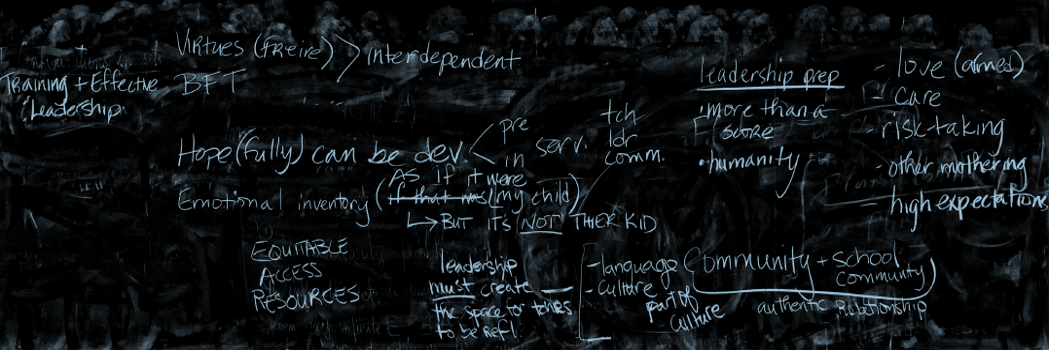“Caring” specifically in the work that services others should not be an anomaly. The assertion that empathetic caring is distinguishable from normative caring because it evokes emotions that push others to go further in finding a solution is concerning (Bass, 2012). I feel like empathetic caring should be the norm. However, to care and utilize caring as an act of resistance to combat structural racism in education, an investment in the emotional well-being of students of color must exist (Wilson, 2015). So how do we find a solution? The cure to all of the education woes goes beyond exclusively hiring black women educators/leaders. Leaning into black womanist theory and black feminist theory may assist with paying the education debt. Black women educators leaning into their maternal instinct motivates, protects, and essentially provides the tools for survival in an education environment that has traditionally rejected black education from students to scholars (Beauboeuf-Lafontant, 2002). Thus, highlighting Black women and their epistemological contributions can serve as a way to combat the disproportionality we see in education.
The readings for this week have prompted me to ask a radical question “Should black education be left exclusively in the hands of black educators?” And a second tiered question that I had was Are disadvantaged people the only ones in need of “rescuing”? I ask this because I feel like those who are complicit in maintaining a system of racial and/or class hierarchy are in distressing form as well. Imagine if they had to unpack their “stuff” in the ways that bipoc’s have to?!?




Oh my gosh I am so glad you threw some shade at that “rescuing” comment from the Bass reading. I thought that was so weird!! For me, radical/critical caring is about fighting to dismantle the systems that cause your students problems. So that means taking it to the oppressive structures and oppressive agents, like you said, Fatima. It doesn’t just mean “rescuing” the students who are harmed by those systems. Of course, that’s not to say that racially/critically caring teachers should just ignore their students individual needs. Those should be taken care of as a basic practice of caring. But the critical/radical comes in when you’re going beyond that. Thanks for the thought provoking questions and summary!
Yes, August, me too! That line about “rescuing” in the Bass article really threw me off, I’m glad you both brought it up. It seemed misaligned with the care that Bass was describing, and much more aligned with the normative forms of caring that are problematic and patronizing – the idea that individual children need “saving,” when it’s the oppressive system and agents that you describe, August, that need to be challenged and dismantled.
I really resonated with everything you said here, Fatima. Empathic, collective, and critical care should 100% be the norm, and it’s not – I think because that kind of care is so antithetical (and threatening) to the racist, capitalist, settler colonial structures and ideologies that our country was built on. I also really appreciated both of your questions. Your second question in particular, about challenging those who are complicit in maintaining (and benefiting from) racist systems, made me think about this quote from the Beauboeuf Lafontant article, where she describes Marva Collins’ approach to teaching. She explains that Collins “does not uncritically glorify children. Nor does she simply strive to make students feel good about themselves. The purpose of her teaching is much more political: to help them question reality along with her and to discuss its implications for them” (p. 78). This seems critical for white children (and teachers) – questioning what is presented as reality, and deeply thinking through those implications, grappling with our own complicity. What would that look like in practice?